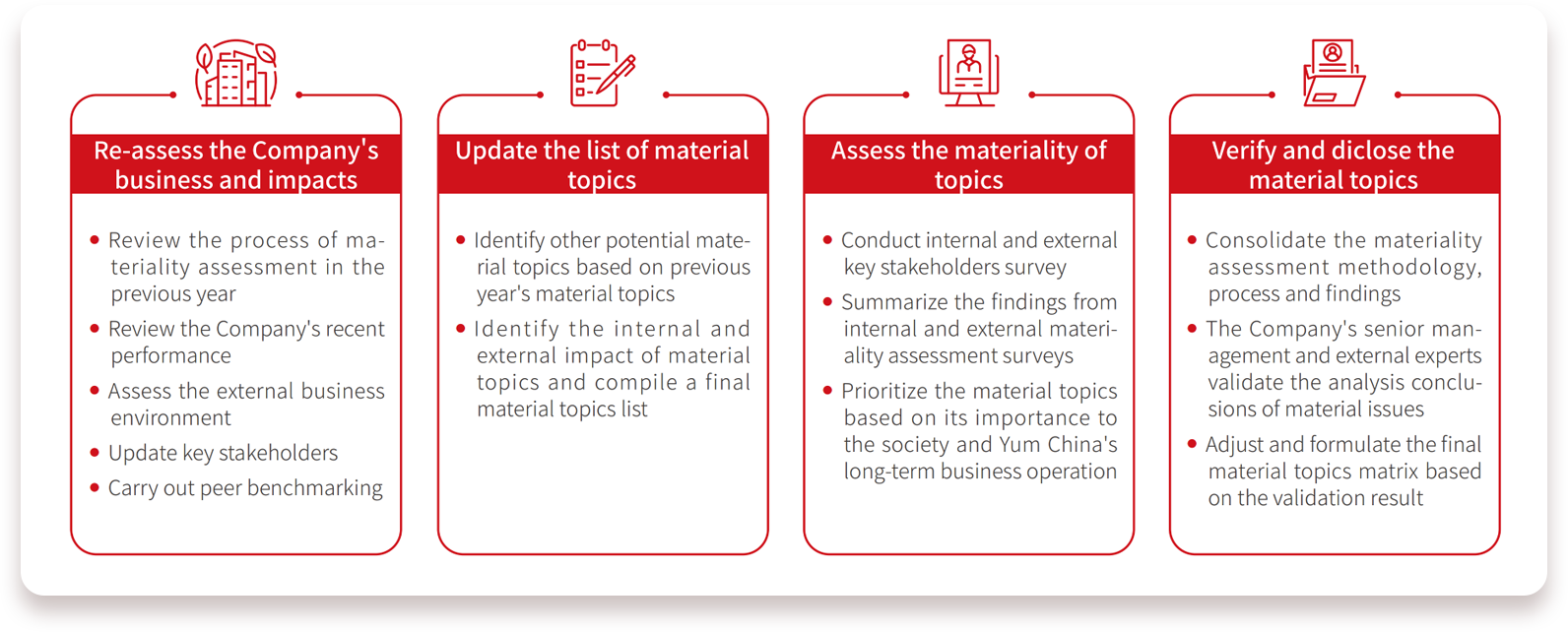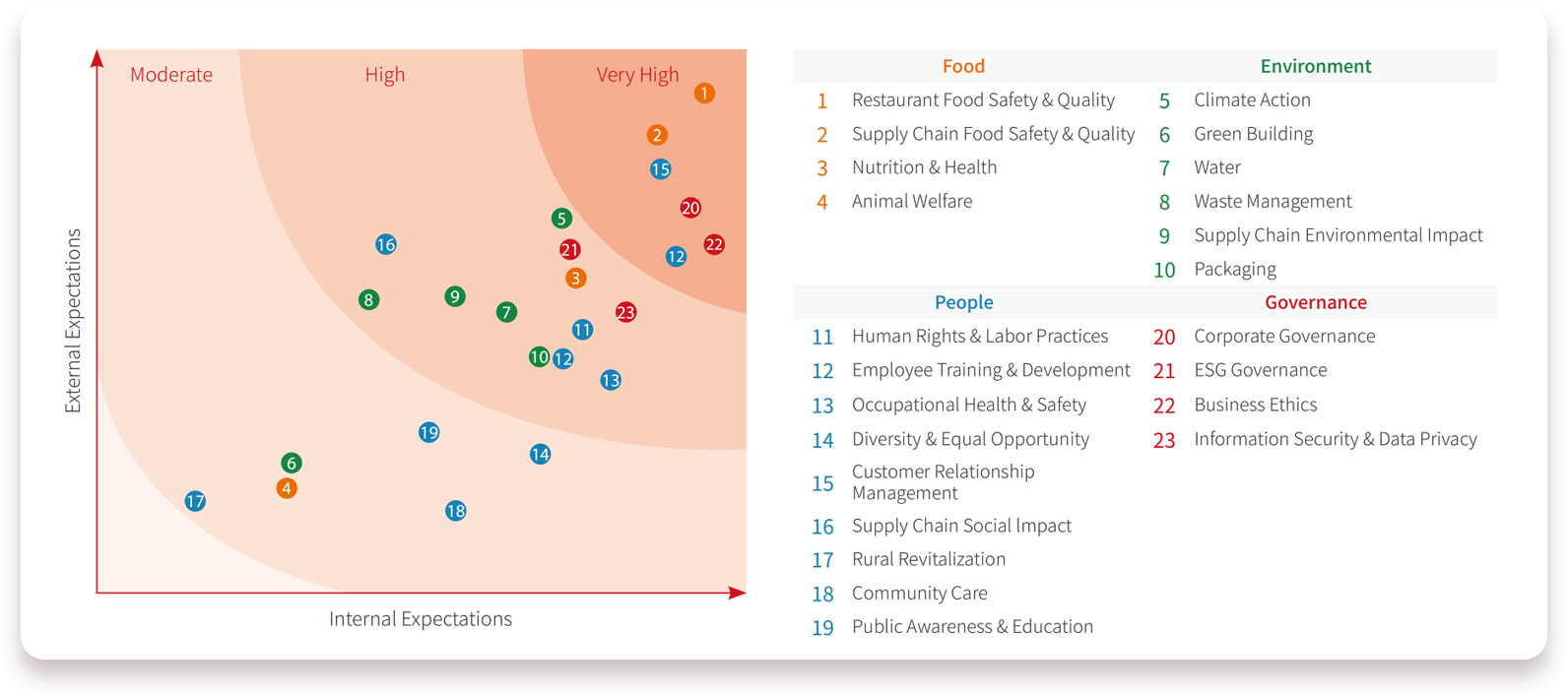Yum China has integrated the management of sustainability-related impacts,
risks, and opportunities into its internal management processes.
Based on the results of the materiality assessment,
the Company identifies its annual sustainability priorities and action plans.
Additionally, we have adopted our Yum China Stakeholder Engagement Policy
to foster effective communication with our stakeholders while taking into
consideration both internal and external expectations and requirements.
Since the first materiality assessment conducted in 2017, we have established a process of "reviewing,
identifying, prioritizing, and validating" material topics. In subsequent years, we re-evaluate these
topics annually to ensure that the assessment results accurately reflect the Company's operation
status and stakeholder considerations.

In 2024, we conducted a comprehensive sustainability materiality assessment considering
various factors such as characteristics and development stage of our industry, our business
model, and value chain. We incorporated the latest regulations, industry standards and
development trends, conduct peer benchmarking, and identify various potential material topics.
These were benchmarked against the 17 United Nations Sustainable Development Goals (SDGs),
to ensure the alignment with the United Nations 2030 Agenda for Sustainable Development.
To ensure the assessment is comprehensive and representative, we conducted an online survey
and collected over 3,700 valid responses from both internal and external stakeholders.
After thorough analysis and rigorous validation, we identified and ranked 23 material
topics across four main aspects: "Food, Environment, People, and Governance."



